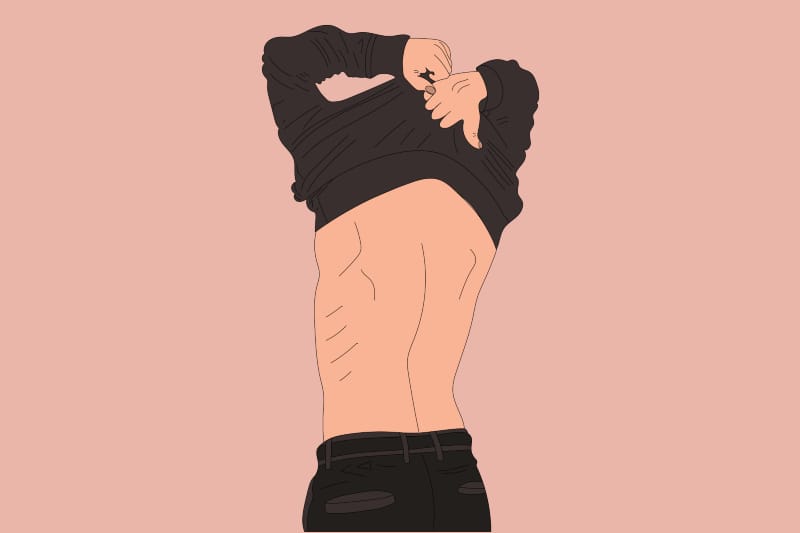Book Club: Cinema Love
A debut novel by Jiaming Tang that explores the queer immigrant experience.

Published in 2024, Cinema Love is the debut novel of Jiaming Tang - a writer based in Brooklyn.
What's it about?
For over thirty years, Old Second and his wife, Bao Mei, have cobbled together a meagre existence in New York City’s Chinatown. But unlike other couples, these two aren’t in love. In rural China, before they emigrated, they frequented the Workers’ Cinema - a rundown theater where gay men cruised without fear.
While classic war films played, Old Second and other men connected with each other in the screening rooms. In the box office, Bao Mei sold tickets - seeing herself as a protector of the men inside, guarding the secrets, guiding them in their relationships, and even finding her own happiness with the theatre’s projectionist.
As Bao Mei and Old Second's lives become entwined, they find their way to America to make a new start - but escaping the past is not that easy.
What themes does the novel explore?
Immigration
- Lured by the promise of a new beginning, the Chinese immigrants take enormous risks to travel to America but soon discover that life in their chosen country is far from easy.
- The immigrants find safety and community by sticking together, creating their own world in New York's chinatown. Assimilation is a slow process.
Memory
- For all the characters, the past continually infiltrates the present and shapes who they are and how they navigate the world.
- Memories of childhood experiences, family stories, fragments of the past all float to the surface of the characters' consciousness as the experience the world around them.
Grief
- Bao Mei is drawn to the cinema by the grief she feels at the death of her brother. She feels her brother's presence in the cinema and believes that working there is a way of honouring him and continuing to maintain their connection.
- Yan Hua is consumed by her grief for her husband Shun-Er, and the guilt she feels in being complicit in his death.
- Grief is frequently processed through the lens of the supernatural.
How the stories we tell ourselves shape our sense of self
- We see the immigrants writing to their families back home and telling stories of the lives that they wish that they were leading - omitting the inconvenient truths of the reality of their day-to-day hardships.
- Social media is another way in which we curate an aspirational life for ourselves - Yan Hua projects the life that she wishes she was living.
- To assuage her guilt, Yan Hua reimagines the sequence of events that led to her husband's death. She disassociates herself from her actions - it was another version of her that betrayed her husband.
- Bao Mei writes letters to continue the stories of the men from the cinema - imagining successful lives and love-filled relationships.
- There is a tension between the secrets that we keep and the information that we're willing or able to share.
The human need for intimacy
- The cinema is a place where men come searching for a connection that they can't access anywhere else. They pursue this intimacy despite the societal pressures and the risks involved.
- Yan Hua found an intimacy with Shun-Er that she wasn't able to find anywhere else. Someone who saw her, understood her, and listened to her - someone who knew her deeply.
- We also see friendship as a powerful form of intimacy - particularly for Yan Hua, who finds connection with May and Little Amy, Kevin, and also Bao Mei.
The Covid-19 pandemic
- The timeline of this novel sees our characters experiencing the Covid-19 lockdown in New York. Through observation, we relive some of the mundane realities of the pandemic as well as the city's gradual reopening as vaccines helped reduce the threat of the virus.
- The pandemic doesn't necessarily shape the narrative but it provides a backdrop against which the story unfolds.
- The 9/11 attack on the World Trade Centre is used in a similar way - as a marker of time.
Resilience
- Following his family's violent rejection of him, Old Second finds a way to endure. He finds a way to connect with others. He becomes self-sufficient and figures out how to move forward in the world.
- For all of the characters, despite their hardships and trauma, they find a way to survive, to live.
Societal change
- As the narrative travels through the decades, the characters bear witness to the societal change around them. The development of rural china, the construction of cities in China, the changing face of New York's chinatown.
Why is this an important novel for gay men?
We don't often get to read the stories of queer men from China, and how they found intimacy together in past years.
Jiaming Tang gives us complex characters with all their flaws - weaving the threads of their stories together as the years roll by.

Naked Men Talking: Book Club
What if we took our clothes off and talked about books?

Naked Men Talking: Events
Book Club is part of the series of events that are presented by Naked Men Talking.

